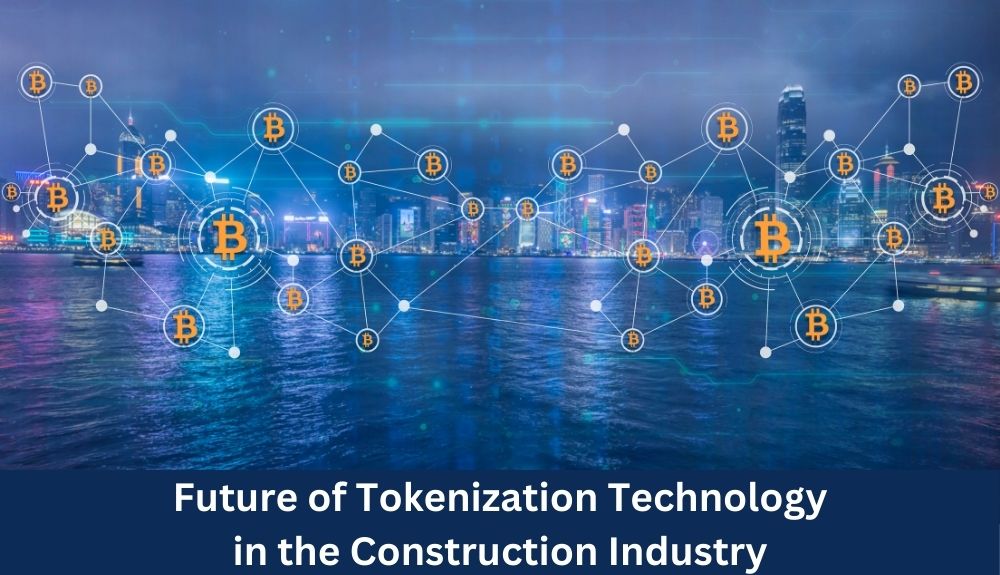Introduction to Tokenization Technology
In a world where data security and compliance are paramount, contractors handling payments face unique challenges. Enter tokenization technology – the game-changer in safeguarding sensitive payment information while streamlining financial transactions. Let’s dive into how this innovative solution is revolutionizing contractor payment processing, enhancing security, and ensuring regulatory compliance in the construction industry.
Benefits of Tokenization in Contractor Payment Processing
Tokenization technology offers a myriad of benefits for contractor payment processing. One key advantage is the enhanced security it provides by replacing sensitive data with unique tokens, reducing the risk of data breaches and fraud. This helps contractors feel more secure when handling payments online.
Additionally, tokenization simplifies compliance efforts by ensuring that payment information is stored securely and in accordance with industry regulations. This can save contractors time and resources that would otherwise be spent on maintaining compliance.
Moreover, utilizing tokenization streamlines payment processes by providing a seamless way to securely store and transmit payment data. Contractors can focus more on their projects knowing that their financial transactions are protected.
Integrating tokenization into contractor payment systems not only boosts security and compliance but also improves efficiency and peace of mind for both contractors and clients alike.
How Tokenization Enhances Security and Compliance Efforts
Tokenization technology plays a crucial role in enhancing security and compliance efforts in contractor payment processing. By replacing sensitive information with unique tokens, tokenization helps to reduce the risk of data breaches and fraud. These tokens are meaningless to hackers, making it nearly impossible for them to access valuable payment data.
Furthermore, tokenization ensures that contractors’ financial information is securely stored and transmitted during transactions. This eliminates the need for storing actual credit card numbers or bank account details, reducing vulnerability to cyber threats. Compliance requirements such as PCI DSS are also easier to meet with tokenization in place, as it strengthens data protection measures.
In addition, tokenization adds an extra layer of security by encrypting sensitive data before it is processed for payments. This not only safeguards contractors’ personal information but also instills trust among clients regarding the integrity of their payment transactions. As cyber threats continue to evolve, implementing tokenization becomes increasingly essential in safeguarding contractor payment processes against potential risks. Tokenization is a process of replacing sensitive payment information, such as credit card numbers, with non-sensitive data called tokens. These tokens are randomly generated strings of characters that have no meaning on their own and cannot be reverse-engineered to reveal the original
Common Misconceptions about Tokenization
Tokenization technology is gaining popularity in contractor payment processing due to its enhanced security features. However, there are some common misconceptions surrounding tokenization that need to be clarified.
One misconception is that tokenization is only necessary for large companies or organizations. In reality, businesses of all sizes can benefit from implementing tokenization to secure sensitive payment information.
Another misconception is that tokenization is complex and difficult to implement. With advancements in technology, integrating tokenization into payment systems has become more streamlined and user-friendly.
Some may believe that tokenization requires a complete overhaul of existing payment processes. In actuality, many payment service providers offer seamless integration options for incorporating tokenization without disrupting current operations.
Understanding these misconceptions can help businesses make informed decisions about leveraging tokenization technology for their contractor payment processing needs.
Implementing Tokenization in Contractor Payment Systems
Implementing tokenization in contractor payment systems is a strategic move towards enhancing security and compliance. By replacing sensitive data with unique tokens, the risk of payment fraud and data breaches is significantly reduced.
The process involves assigning a random token to each transaction, ensuring that actual card details are never exposed during payment processing. This not only protects contractors from potential cyber threats but also simplifies PCI DSS compliance requirements.
Integrating tokenization technology into existing payment systems may require some initial setup and integration work. However, the long-term benefits outweigh the implementation effort. Contractors can rest assured knowing that their financial information is safeguarded against unauthorized access.
As industries evolve and regulations tighten, adopting tokenization becomes imperative for businesses seeking to stay ahead of cybersecurity threats in an increasingly digital landscape.
Future of Tokenization Technology in the Construction Industry

Tokenization technology is poised to revolutionize the construction industry in the coming years. As more contractors and project managers recognize the value of enhanced security and compliance measures, the adoption of tokenization will become increasingly prevalent.
In an industry where sensitive payment information is constantly being exchanged, the implementation of tokenization can provide a much-needed layer of protection against data breaches and fraud. By replacing actual card details with unique tokens, contractors can rest assured that their financial transactions are secure and compliant with industry regulations.
Looking ahead, we can anticipate further advancements in tokenization technology tailored specifically to meet the evolving needs of construction professionals. As cybersecurity threats continue to evolve, so too will the tools and strategies employed to safeguard sensitive payment data in contractor transactions.
With ongoing innovation driving the development of tokenization solutions, it’s clear that this technology will play a pivotal role in shaping the future landscape of payment processing within the construction sector.
Conclusion
Tokenization technology offers a robust solution for enhancing security and compliance efforts in contractor payment processing. By replacing sensitive data with unique tokens, businesses can significantly reduce the risk of data breaches and ensure regulatory adherence. As the construction industry continues to evolve, implementing tokenization in payment systems will become increasingly crucial for protecting valuable information and maintaining trust with contractors and clients alike. Embracing this innovative technology will not only safeguard financial transactions but also streamline processes, ultimately leading to a more secure and efficient payment ecosystem within the construction sector.
